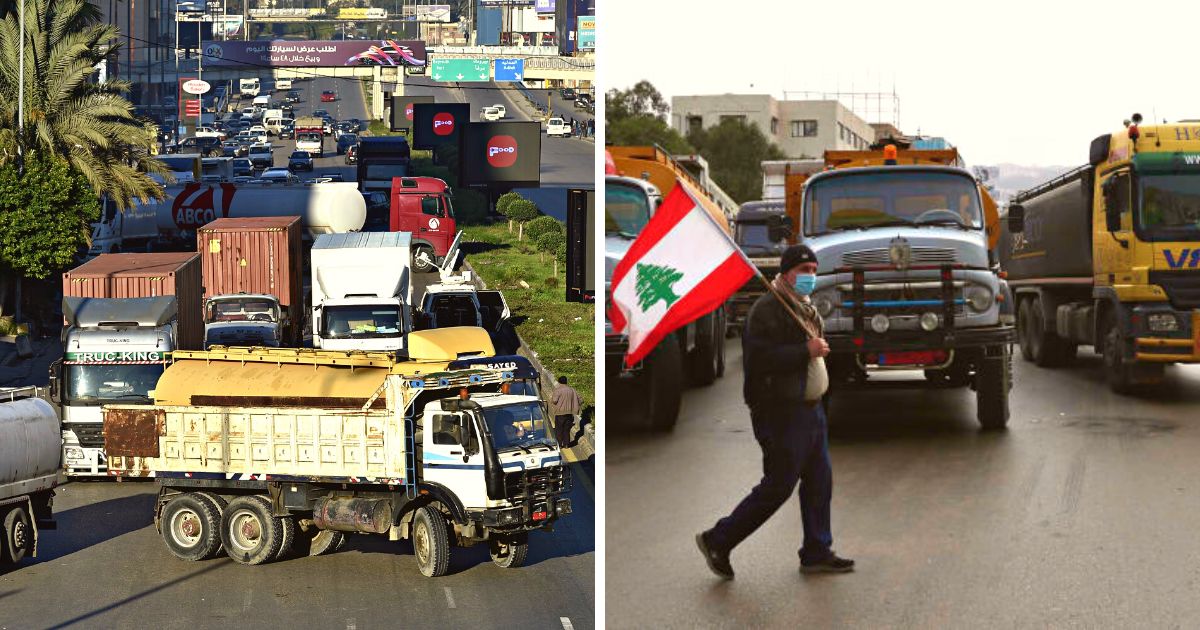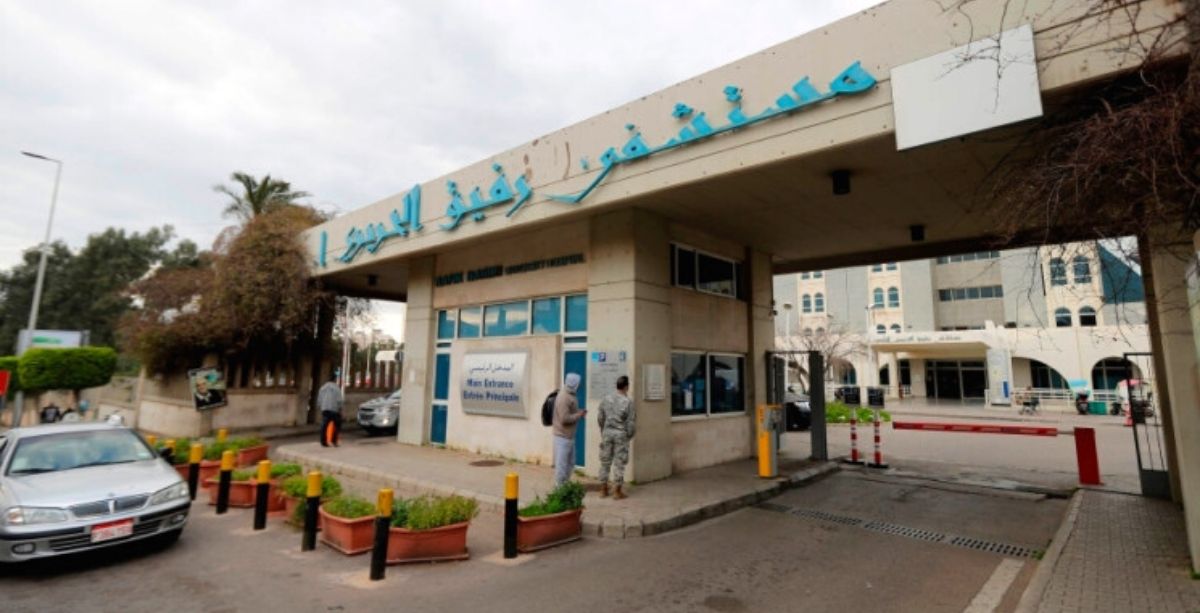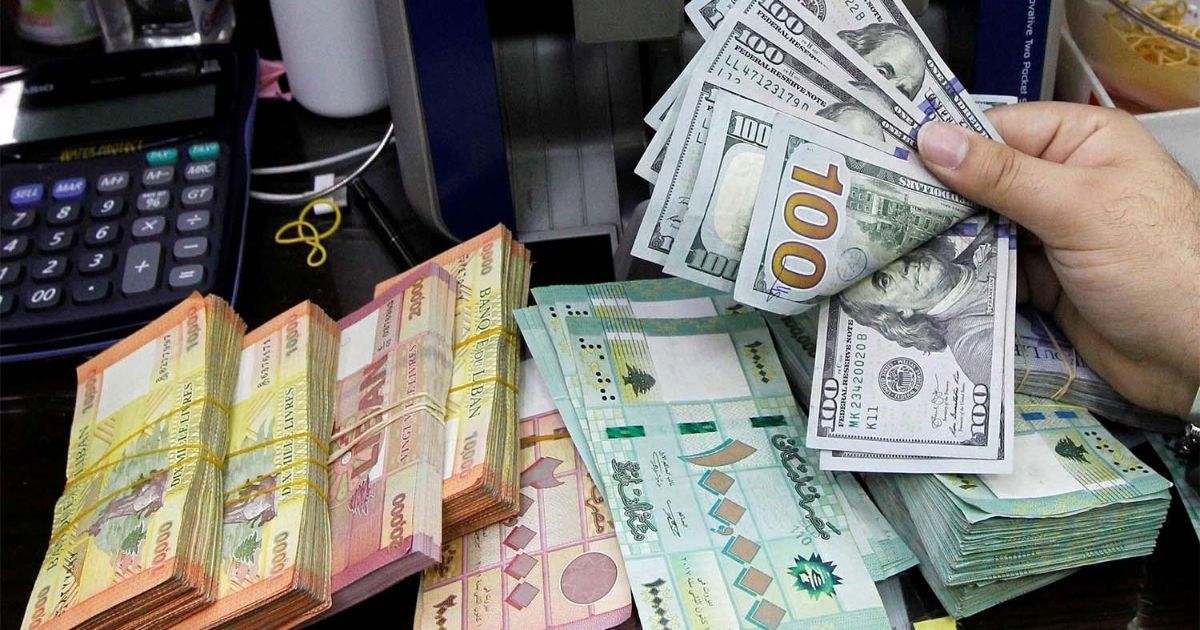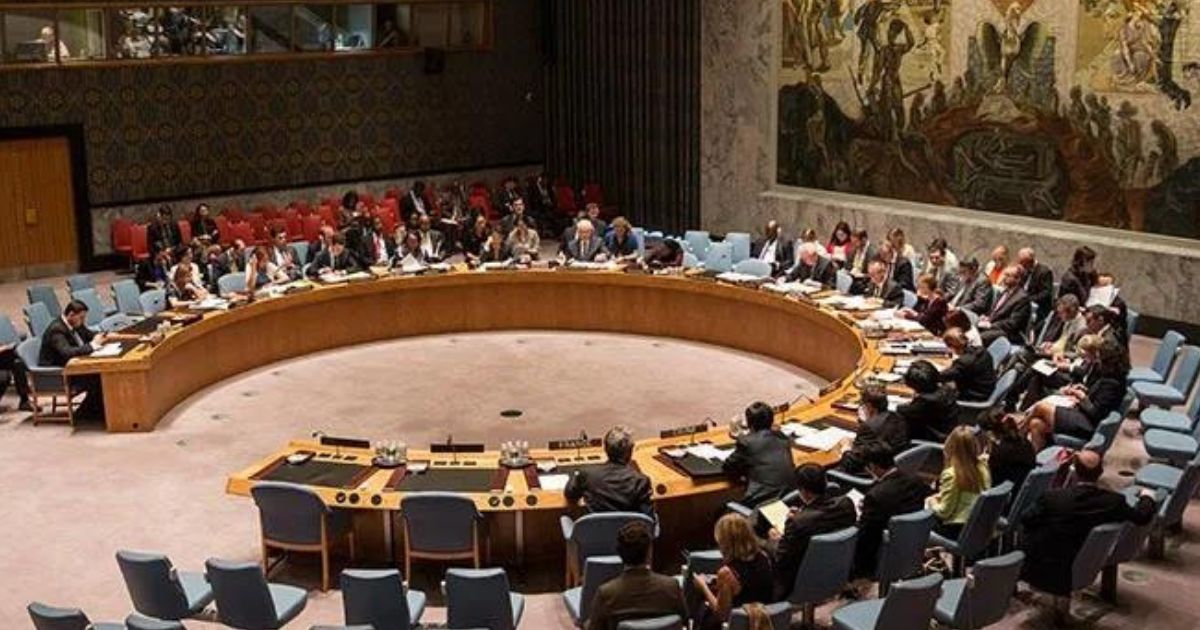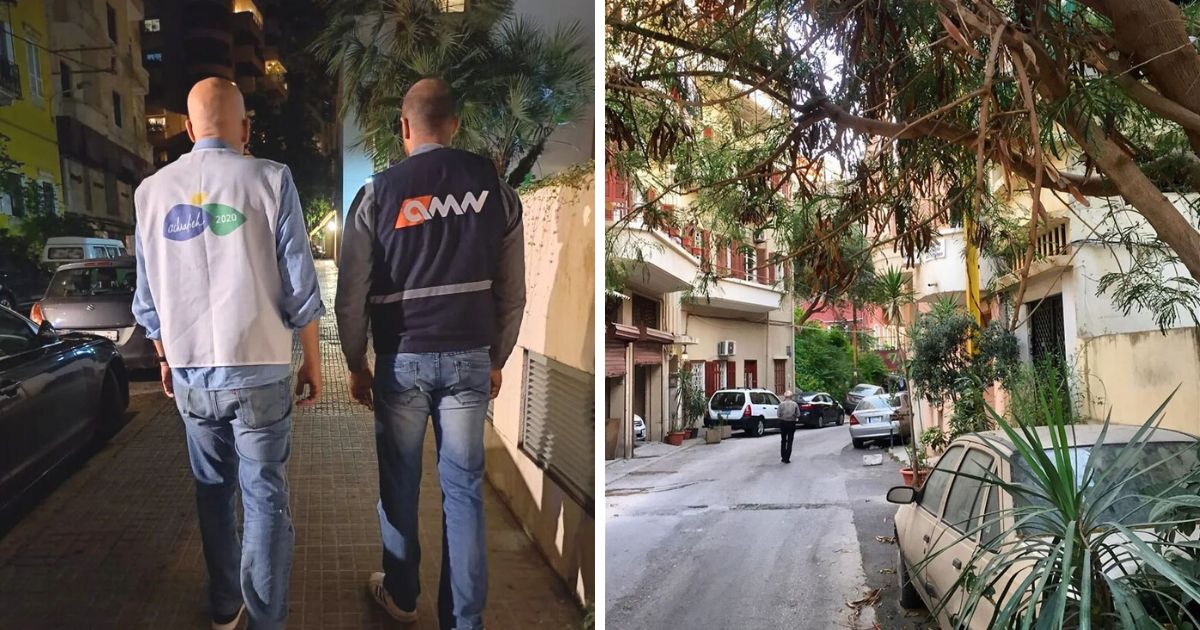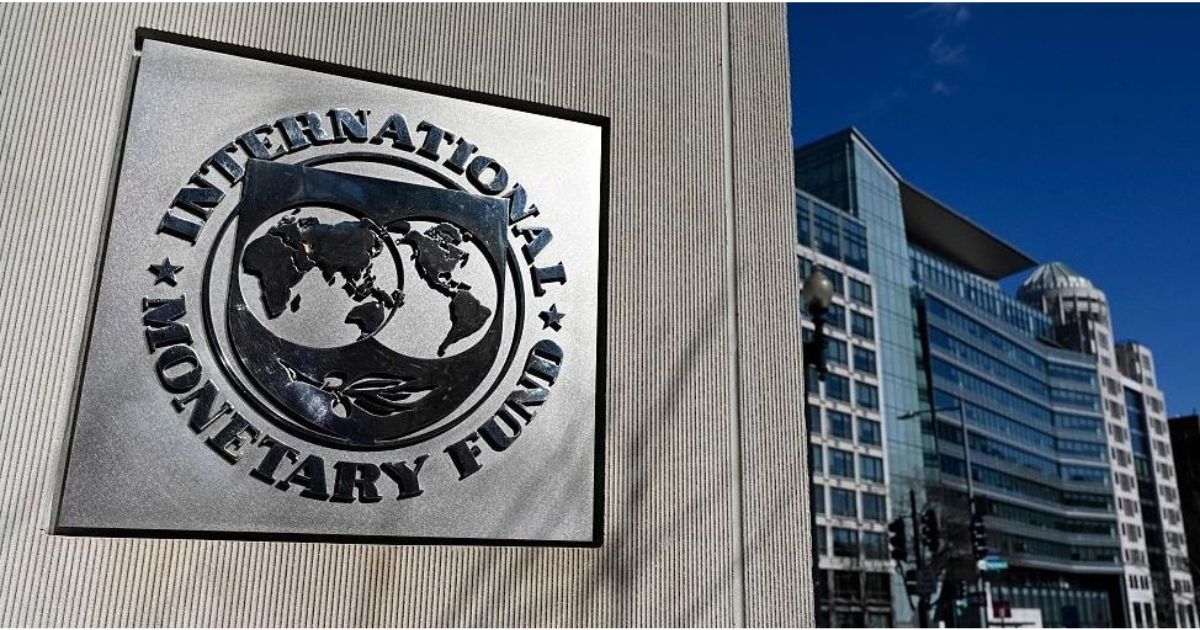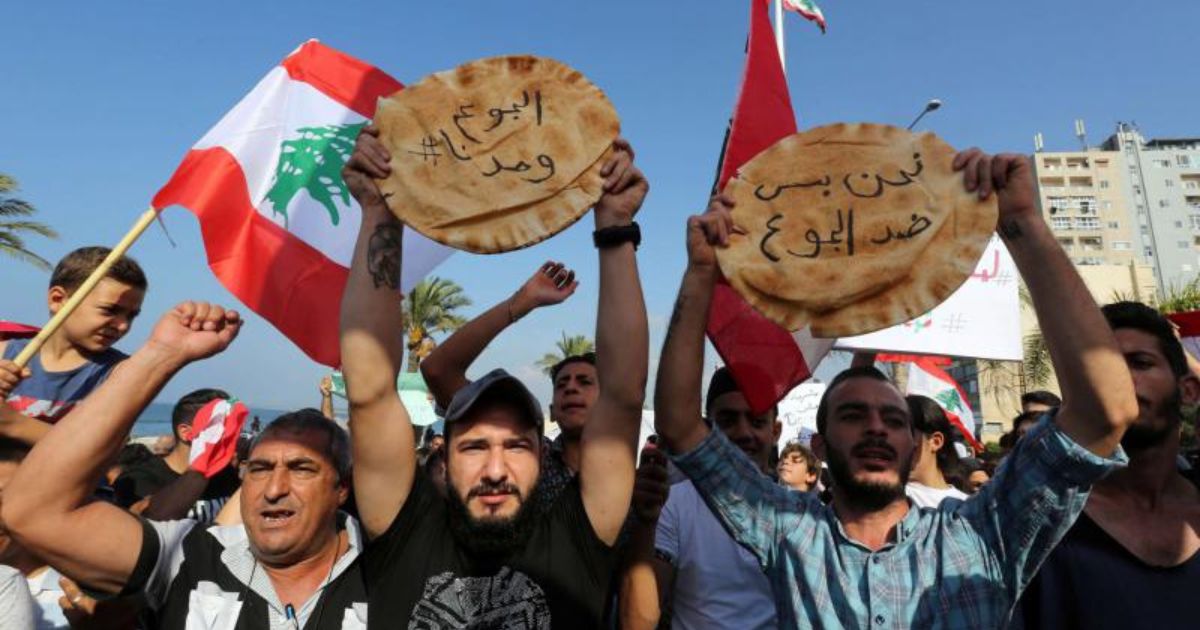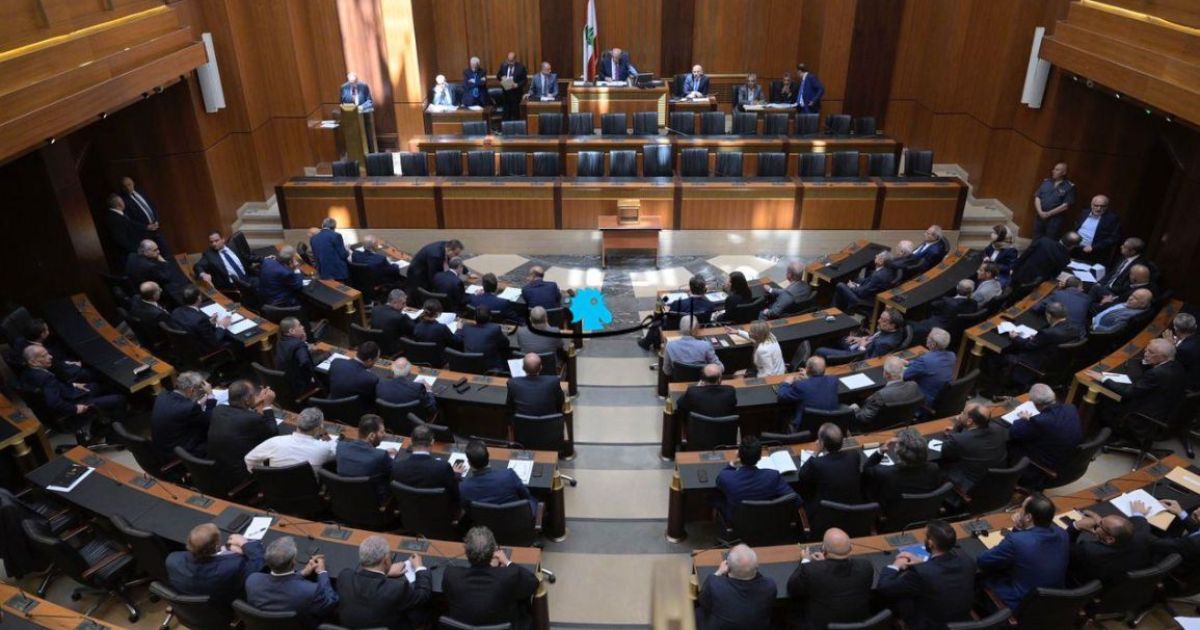The Lebanese economic crisis has been the main reason for the reigniting of the revolution in the past week.
According to Reuters’ interview with former Minister of Economy and Industry Dr. Nasser Saidi, Lebanon needs a bailout of $20 billion-$25 billion.
Dr. Nasser Saidi revealed that $11 billion in previously pledged support from foreign donors is now “roughly half of what was needed to mount a recovery.”
Lebanon needs the International Monetary Fund (IMF) and World Bank to help in this crisis, as reported by Reuters.
IMF and Lebanese officials were scheduled to meet in the middle of January “to discuss ways to help Lebanon rise and available plans to save it from total collapse,” according to the Arab Window News.
However, the current caretaker government has requested to postpone that crucial meeting of cooperation with the IMF.
According to the Arab Window News, its source familiar with the official Lebanese communication channels with the IMF said: “The IMF mission was shocked to the core by the Lebanese postponement.”
Adding to the continuing procrastination of the government, this postponement has just denied Lebanon a precious opportunity to avoid total collapse, delaying that most needed rescue plan for the country.
Lebanon is not the first country in crisis that the IMF has dealt with but it is most certainly the first that exhibited such a level of lack of responsibility.
According to the Arab Window news, some politicians “seek to block any signs of bailout solutions.”
In confirmation, Saad Harriri told Reuters: “Let’s suppose that I spoke to the World Bank, and we agreed with them on something, can I implement this agreement as part of a caretaker government. No, it is not possible.”
What we understand here then is that a caretaker government in Lebanon has no ‘authority’ to take care of the country’s affairs, not even to save it, hence not to govern it.
So what does “caretaker” really mean when it comes to a Lebanese government?
Does it mean that Lebanon is floating in a void as it waits for a new government to be formed? If so, are the officials okay with keeping the country in that void until now while they do their own battle of the seats?
The IMF mission is said to be “shocked to the core” by such a “level of lack of responsibility” but it doesn’t really shock the Lebanese people.
It angers the people but it doesn’t shock them. Lebanese politicians have always managed to put their personal interests before the country’s needs.
Politicians have yet to agree on a new government or allow the formation of a new one under Hassan Diab, after which working on a rescue plan with the IMF could be only possible.
Saad Hariri stresses: “We all know that any step we want to carry out in the economic file needs us to cooperate with the World Bank, the IMF, and other international institutions.”
The United Nations Special Coordinator for Lebanon, Jan Kubis, criticized Lebanese politicians for their lack of accountability for the gridlock and economic decline the country is going through.
He stated that the politicians are blaming the people for this crisis instead of blaming themselves.
He also went on to criticize the central bank governor, Riad Salameh, for asking authorization to make ends meet at banks, while those that have led to this situation are just watching.
The formation of a new government is vital for preventing the total collapse of the country. While politicians have all their focus and efforts on dividing their shares of seats amongst each other, people are in the streets sounding the sirens of poverty, sickness, and despair.
Anger is mounting, and severely. The Week of Anger is just at its very start and it might not end at the end of the week; not when the status quo seems adamant against evolving any time soon.




